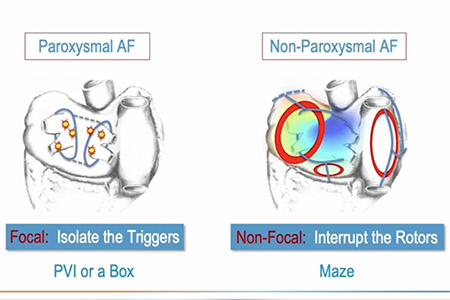How to establish a successful and sustainable surgical atrial fibrillation program: key considerations on the arrhythmia, training and treatment strategies
Abstract
Establishing a successful and sustaining atrial fibrillation (AF) program should be current standard of care in cardiac surgery by providing not only sinus rhythm restoration but improving survival significantly. Recognition of AF as a serious cardiac disease impacting a considerable number of patients in terms of stroke, heart failure development and mortality is key when implementing a protocol to identify patients suitable for surgical ablation and a treatment standard according to the underlying pathology. The ablation strategy resulting in the best potential rhythm outcome should be chosen, and the applied access should follow this decision in a way that the optimal lesion set can be executed completely. A thorough follow-up is required to confirm results or make necessary adjustments to the implemented treatment protocol. This should be done in close collaboration with other treatment specialists such as cardiologists, electrophysiologists, primary care physicians, or neurologists. This collaboration might also facilitate an expansion of the program towards stand-alone ablation, ventricular tachycardia ablation, and inappropriate sinus tachycardia ablation.
Cover






